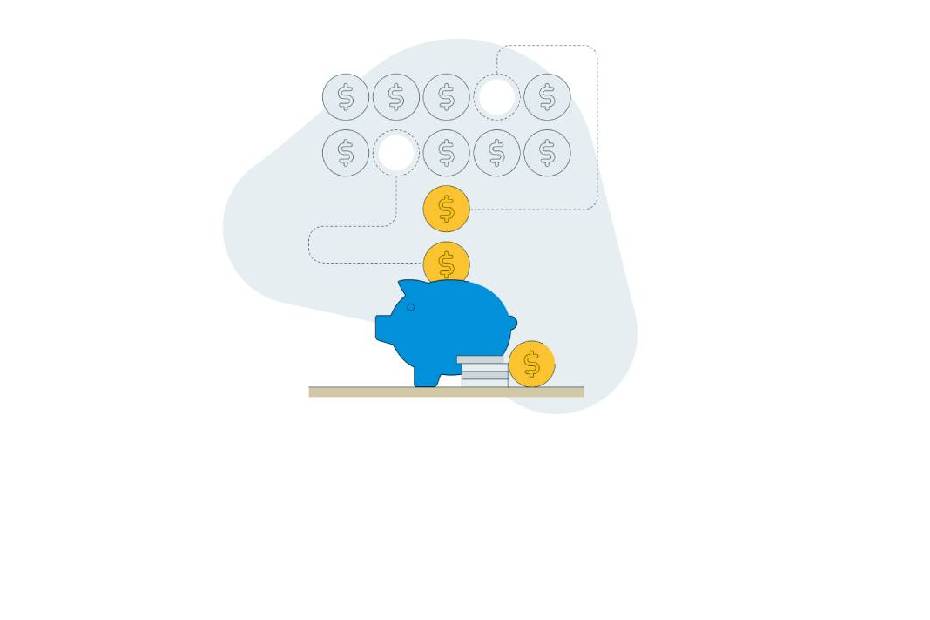This piece originally appeared in the Inspired Investor on May 5, 2021.
Confession: I am not a natural saver. In my 30s, I knew I had to change my money habits, but platitudes like “it’s important to save” did little to motivate me. Like many people, for too long, I approached saving money as a series of tasks to cross off a to-do list — not the most winning approach. As financial therapist Amanda Clayman puts it, “Money is the dragon, and we’re trying to hold on to its tail as it whips us around.”
While we all know saving is important, sometimes the goal is a bit hazy. A “good retirement,” for example, means different things to different people. (One person’s rustic cabin by the lake is another’s pied-à-terre in Rome — each comes with different funding requirements, not to mention wardrobes.) Because saving tends to imply putting off sure and immediate gratification today for the possibility of something bigger and better in a distant and uncertain future, it’s important to get clear on what “bigger and better” means to you. This is where values come in. Instead of feeling whipsawed by competing financial demands (that is, letting that money dragon throw us around), Clayman recommends being proactive and intentional.
“Our personal values shape our ideas of what we should and shouldn’t do with money,” says Clayman. “Unpacking true values is about reflection. One of the things that’s often missing in a healthy relationship with money is to sit back and ask, ‘How do I feel about this?’ Or ‘What do I wish there was more of, and also less of, in my financial life?’ Only in answering questions like this can we get to a place of clarity with what our values are.”
Purposeful saving
Purposeful saving also helps us stick with the plan, especially when temptation strikes. Financial decisions are challenging because we have to balance different potential scenarios and consequences. “When we’re under the sway of hunger, fatigue or an adrenalin rush, a lot of mistakes tend to happen,” Clayman says. “When we are sitting down and thinking about where we want our money to go, and what we want it to do for us, our brain has space and resources it needs to make good decisions.”
Importantly, plan as you might, mistakes will happen, says Clayman. “We could make a very good decision that is fully informed and comes from a place of clarity and purpose, but because of other reasons — and we saw this a lot during the pandemic — there’s still a bad outcome,” she says. “That doesn’t mean the decision itself was bad. Financial mistakes are part of the process and should not engender feelings of shame.”
Shifting priorities around money
Clayman observes that COVID-19 has shaken up a lot of legacy choices around money. Among her clients, she sees a greater sense of how precious and finite life is, and a renewed focus on doing what is important to them. “The centrality of our values has really risen because of COVID,” she says.
Values shift over time. Purposeful saving in your 20s and 30s will be different in your 50s and 60s. Clayman recalls how when she became a parent for the first time she spent “a stupid amount of money on strollers … If you’ve never been a parent before, new values will emerge or existing values will shift. We’re always on a learning curve.”
Want to find other ways to move?
For more kid-related costs you might not see coming, check out Kids Are So Expensive — But Not In the Way I Expected
I’m happy to report that, thanks to purposeful saving, I no longer let the money dragon whip me about. As is true for many people, one of my values is financial independence. For me, this includes a “work optional” lifestyle with a high level of professional autonomy. I concretized that value by painting the picture — for instance, being able to take my dog for a long walk on a beautiful day without looking at my watch — and by establishing the savings amount needed to actualize it. The shift to focusing on my values has made saving (and investing) a pleasure instead of a burden.
So, yes, saving is important, but saving to support your personal values is also, dare I say, fun.
This article is intended as general information only and is not to be relied upon as constituting legal, financial or other professional advice. A professional advisor should be consulted regarding your specific situation. Information presented is believed to be factual and up-to-date but we do not guarantee its accuracy and it should not be regarded as a complete analysis of the subjects discussed. All expressions of opinion reflect the judgment of the authors as of the date of publication and are subject to change. No endorsement of any third parties or their advice, opinions, information, products or services is expressly given or implied by Royal Bank of Canada or any of its affiliates.



















